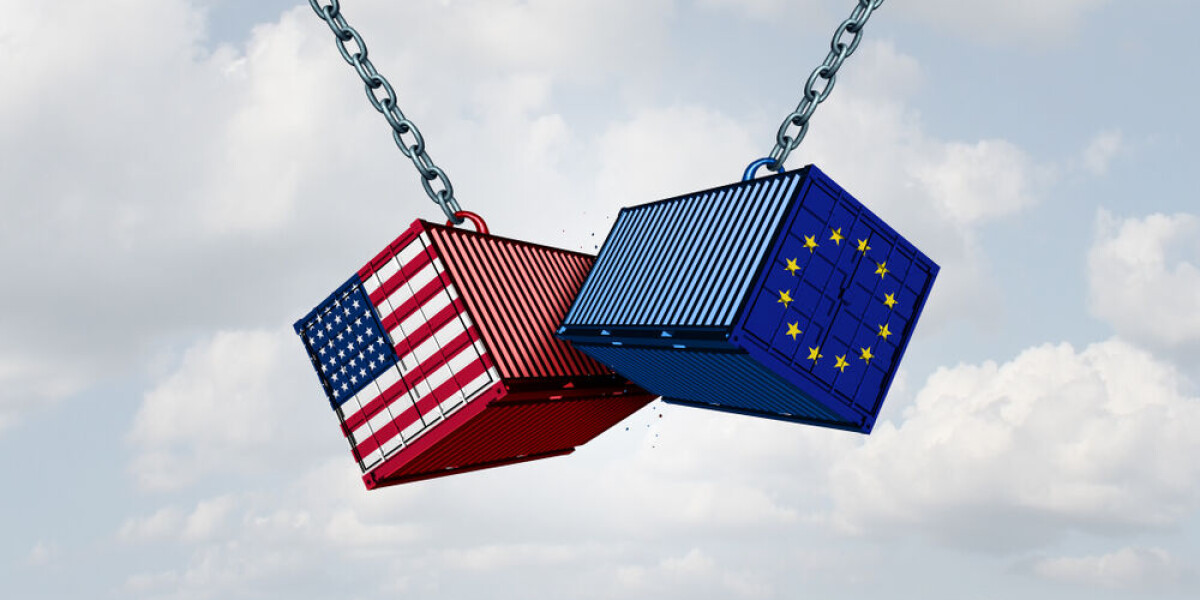Play all audios:
"THE EU IS VERY BAD FOR US,” US PRESIDENT DONALD TRUMP SAID European countries are set to be subject to customs duties for exports to the US after new President Donald Trump announced
his intentions on the matter this week, saying “the EU is very bad for us”. At a press conference on Tuesday, January 21, the newly-sworn-in US president denounced the US trade deficit with
the European Union (EU), and said that imposing customs duties was “the only way” for the US “to be treated properly”. He said that countries in the EU would be subject to customs duties
from Washington DC, although did not specify any tax levels or amounts, reported Reuters. "The EU is very bad for us,” he said. “They treat us very badly. They don't take our cars
or our agricultural products. In fact, they don't take much at all.” Read more: How the French feel about Trump's election win - new poll During his presidential campaign, Mr
Trump had already compared the EU to “a little China”, saying that it “takes advantage” of the US. He reiterated the claim again on January 21. “We have a trade deficit with the EU of $350
billion (€337 billion),” he said. “China is aggressive, but it's not just China. Other countries are also major aggressors.” He also said that he would impose customs duties on European
products unless the EU increased its purchases of US oil and gas. In his first term as president (2017-2021), Mr Trump imposed tariffs on a series of European products, including steel and
aluminium, in retaliation for a trade dispute between Washington DC and Brussels over their respective subsidies for the aviation firms Boeing (US) and Airbus (French-European). WHICH
SECTORS AND PRODUCTS WOULD BE MOST AFFECTED? Sectors in the EU that export to the US, and could possibly be most affected by the new changes include (according to 2023 figures from French
treasury la direction nationale du Trésor): * Aeronautics: €7.9 billion * Pharmaceuticals: €4.1 billion * Beverages, including wine: €3.9 billion Trade in goods between France and the United
States totalled €97 billion in 2023. Read more: French wine producers fear price increases as a result of US election Read also: French winemakers' relief as EU-US deal removes
'punitive' tariffs (2021) Read more: France responds to Trump threat on French wine tax (2019) TRADE DEFICIT IN THE EU Data from the Office of the United States Trade
Representative claims that in 2023, the US trade deficit with the EU amounted to $131 billion (€126 billion), and was concentrated mainly in four countries: France, Germany, Ireland, and
Italy. However, the goods / services vary depending on the country. For example, the trade deficit with Germany is mainly industrial in nature. In contrast, the deficit with Ireland is
largely due to the fact that many major US companies have their European headquarters based in the country, as they can take advantage of its advantageous tax system to reduce their taxes in
the EU and the US. The EU was not the only place to be targeted in Mr Trump’s announcement: similar measures are also planned for products from February 1, 2025 coming from Canada, Mexico,
and China. INTERNATIONAL RETALIATION Also on Tuesday, the EU reacted to Mr Trump's anticipated announcements, with European Commissioner Valdis Dombrovskis having met with finance
ministers in Brussels. “[Europe is] ready to defend its interests,” he said, adding that “[a potential trade conflict] would have a substantial economic cost for everyone, including the
United States”. Other countries in Mr Trump’s crossfire have also responded, reports La Dépêche. Outgoing Canadian Prime Minister Justin Trudeau said that Canada would “retaliate” firmly
and quickly if the United States imposed tariffs. “Everything is on the table, and I support the principle of tariffs to the nearest dollar,” he said at a press conference. However, he
warned that it would “come at a cost to Canadians”. Similarly, Chinese first vice-premier Ding Xuexiang - speaking at the Davos Economic Forum in Switzerland - said that “trade wars have no
winners”, and added that he hoped that Beijing could continue to cooperate with Washington DC on trade issues.

